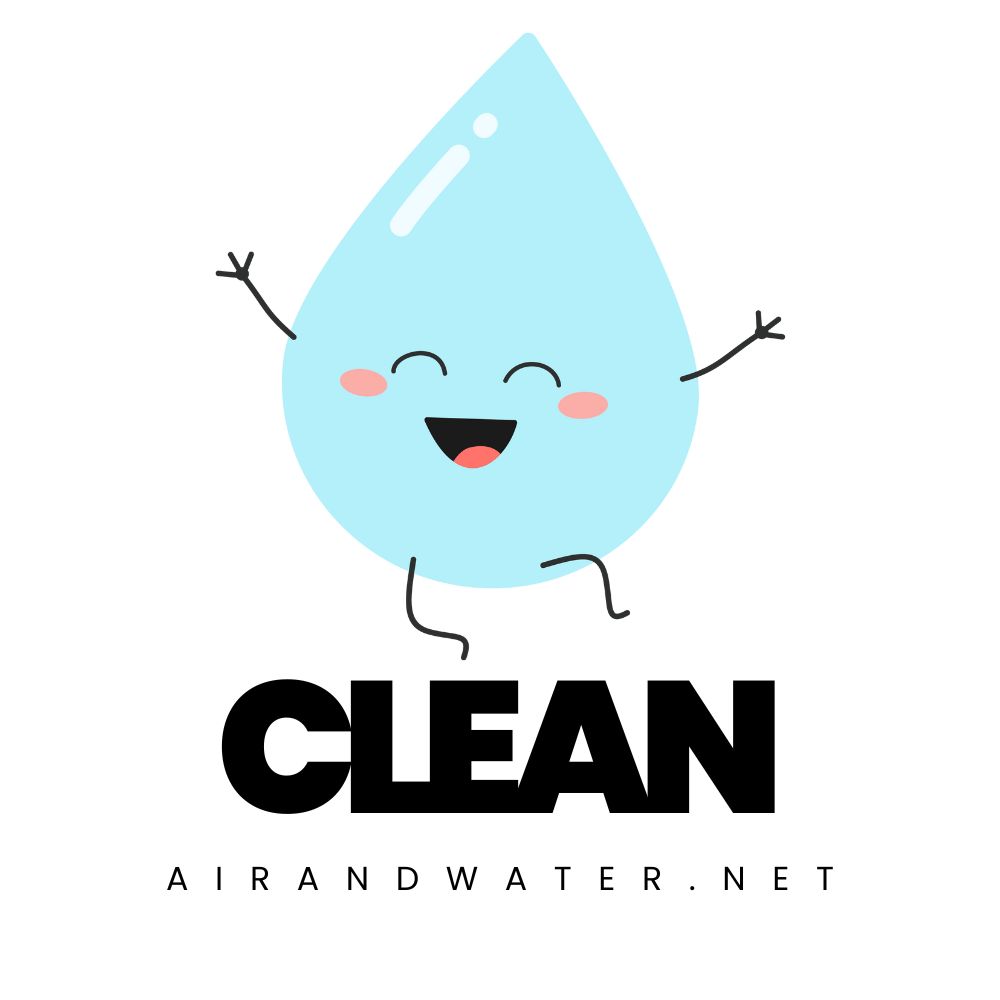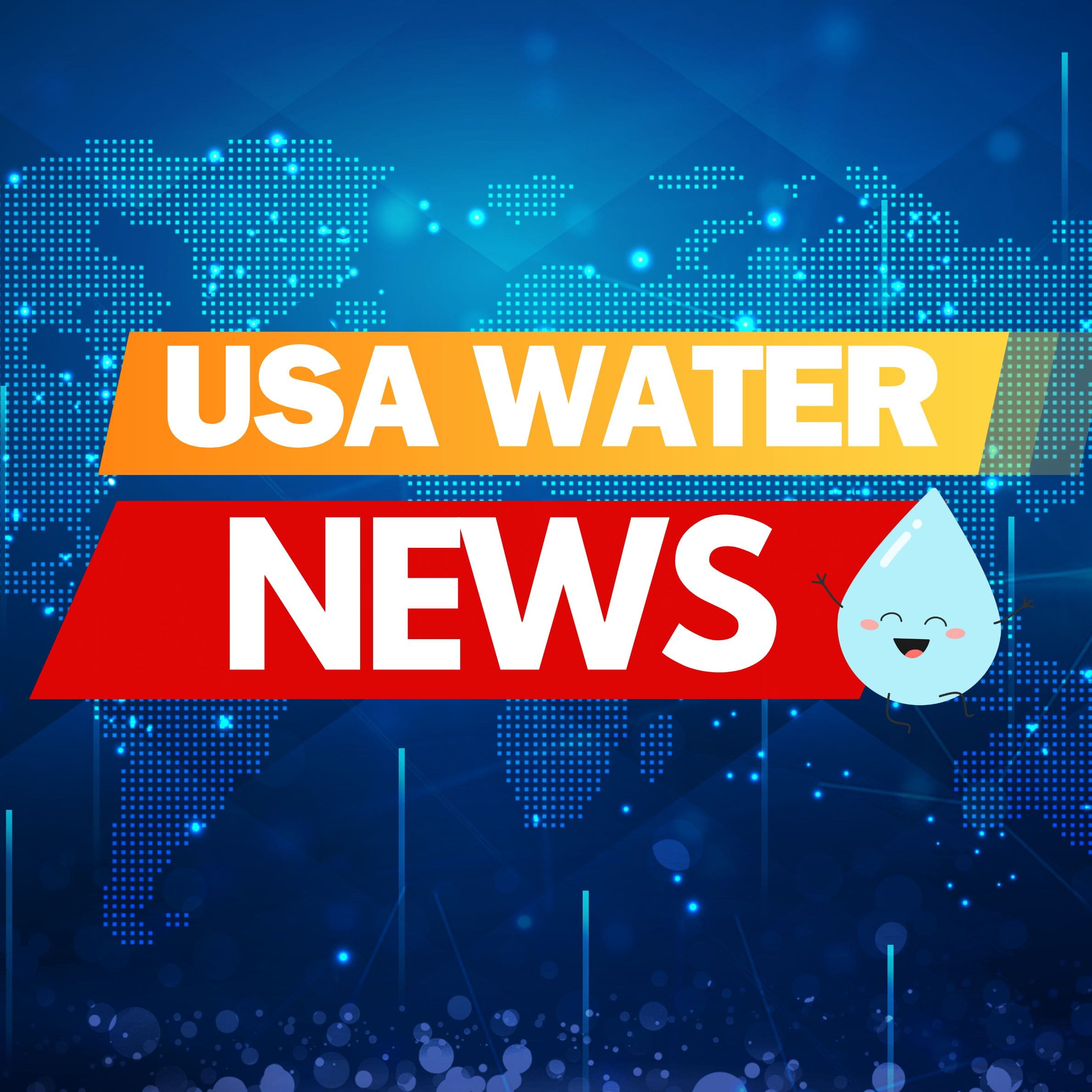Charlotte Water Quality at a Glance
concerning byproducts
Is Charlotte Water Safe to Drink?
Generally Yes, With Filtration Recommended – Charlotte Water meets all federal standards with zero violations, but contains elevated disinfection byproducts from chlorine treatment. The city ranks #8 nationally for water quality, but EWG data shows 9 contaminants above health guidelines. PFAS levels are very low compared to other NC areas.
⚠️ Key Concerns for Charlotte Residents
- Trihalomethanes (TTHMs): 272x above EWG health guideline – formed during chlorine disinfection
- Haloacetic Acids: Up to 413x above health guidelines – cancer-causing disinfection byproducts
- Chromium-6: Hexavalent chromium detected at 3.3x health guidelines – carcinogenic compound
- Soft Water: Only 32 ppm hardness – may require mineral supplementation for some households
Read the full report below for detailed analysis, city-specific data, and actionable recommendations for Charlotte residents.
Charlotte – North Carolina – Water Quality Report 2025: PFAS Testing, Infrastructure Concerns & Safety across your city
Charlotte, the largest city in North Carolina and the 15th-largest in the United States, provides water service to over 1.1 million residents through Charlotte Water, a municipal utility that operates one of the Southeast’s most comprehensive water systems. The utility manages approximately 4,610 miles of water mains, three primary water treatment plants (Franklin, Vest, and Lee S. Dukes), and extensive pumping facilities, delivering roughly 117 million gallons daily across the city and surrounding counties.
Charlotte’s water supply comes primarily from two major lakes: Lake Norman and Mountain Island Lake on the Catawba River, supplemented by regional agreements and the Water Allocation Compact. The city has invested significantly in water infrastructure modernization, including the innovative One Water Initiative that integrates drinking water, stormwater, and wastewater management. Charlotte’s commitment to sustainable water management includes advanced treatment technologies, smart water grid implementation, and comprehensive conservation programs designed to meet future growth while addressing emerging contaminants like PFAS.
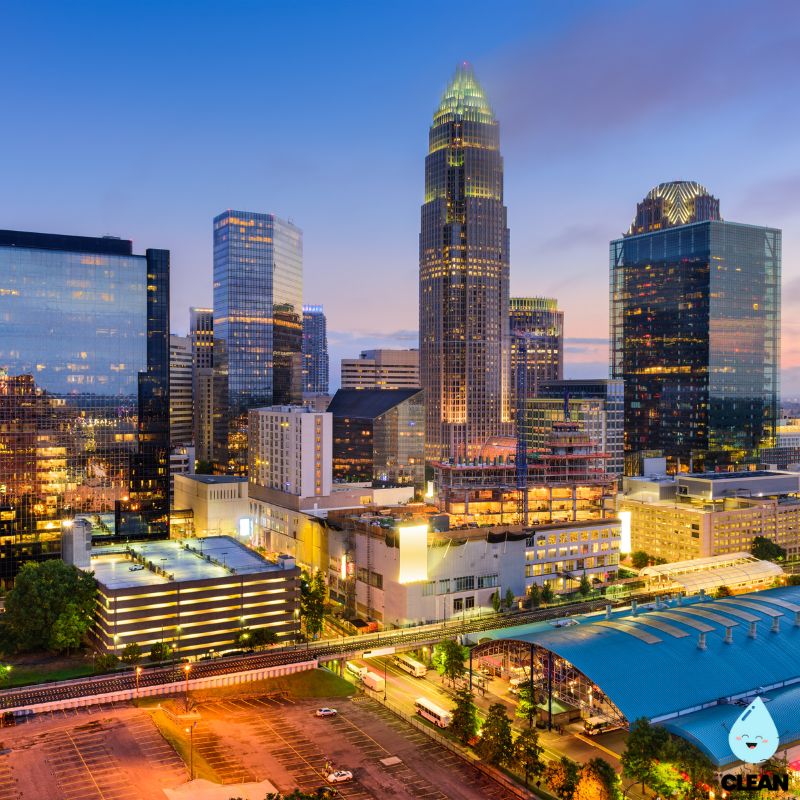
Charlotte Water Quality: Current Status (2024-2025)
Latest Testing Results
- Lead Levels: The most recent testing period (January-December 2023) showed 90th percentile lead levels of 2.8 parts per billion (ppb), well below the EPA action level of 15 ppb, reflecting effective corrosion control and modern infrastructure.
- Testing Scope: Charlotte Water conducts over 170,000 water quality tests annually across its service area, including regular lead monitoring at residential sites and comprehensive testing at treatment facilities.
- Compliance Status: Charlotte’s water meets all federal and state drinking water standards, maintaining full compliance with EPA and North Carolina DEQ regulations with zero violations in 2024.
Lake-Based Water Supply
- Primary Sources: Approximately 75% of Charlotte’s water comes from Lake Norman (50%) and Mountain Island Lake (25%), both on the Catawba River, providing reliable supply from protected watersheds.
- Advanced Treatment Processes: Three treatment plants employ comprehensive processes including coagulation, sedimentation, filtration, and chloramination to ensure high-quality drinking water.
- Watershed Protection: Strict development controls and land use regulations protect the Catawba River watershed, with ongoing partnerships for source water protection.
Infrastructure Innovation
- Smart Water Grid: Charlotte is implementing advanced metering infrastructure with leak detection capabilities, real-time pressure monitoring, and customer usage analytics through digital platforms.
- Main Replacement Program: Systematic replacement of aging infrastructure with approximately 35 miles of water mains renewed annually, prioritizing pipes installed before 1960.
- Facility Upgrades: Major expansions and improvements at treatment plants, including the Franklin Water Treatment Plant enhancement project to increase capacity and treatment reliability.
Integrated Water Management
- One Water Initiative: Comprehensive approach integrating drinking water, wastewater, and stormwater management to maximize resources and minimize environmental impact.
- Water Reuse Programs: Expanded reclaimed water use for irrigation at parks, golf courses, and commercial properties, preserving high-quality lake water for drinking.
- Climate Resilience: Long-term planning includes drought contingency measures, regional water sharing agreements, and infrastructure hardening for extreme weather events.
Customer Engagement
Charlotte Water prioritizes transparency and customer education through extensive public outreach programs, water quality transparency dashboards, and community engagement initiatives. The utility provides free water testing services, educational tours of treatment facilities, and innovative digital tools for customers to monitor their usage and receive alerts. Charlotte’s commitment to environmental stewardship includes significant investments in green infrastructure, stream restoration projects, and educational programs that help residents understand and protect their water resources while addressing emerging challenges like PFAS contamination.
Recommendations for Charlotte Residents
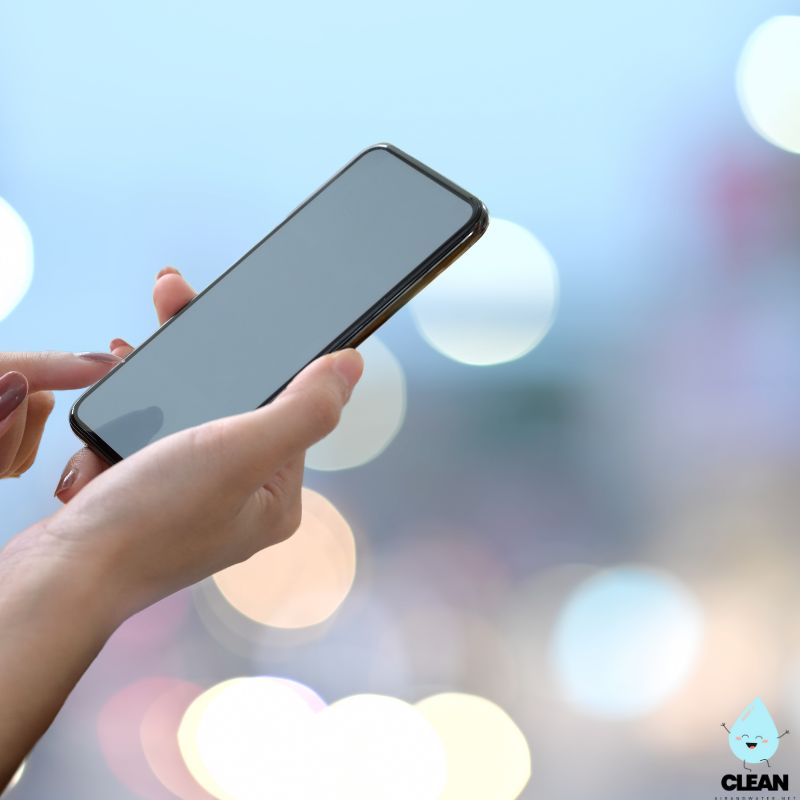
Access Online Portal
Use Charlotte Water’s online customer portal to track your water usage, set conservation goals, and receive leak alerts. Access the portal for convenient bill payment and personalized water-saving tips.
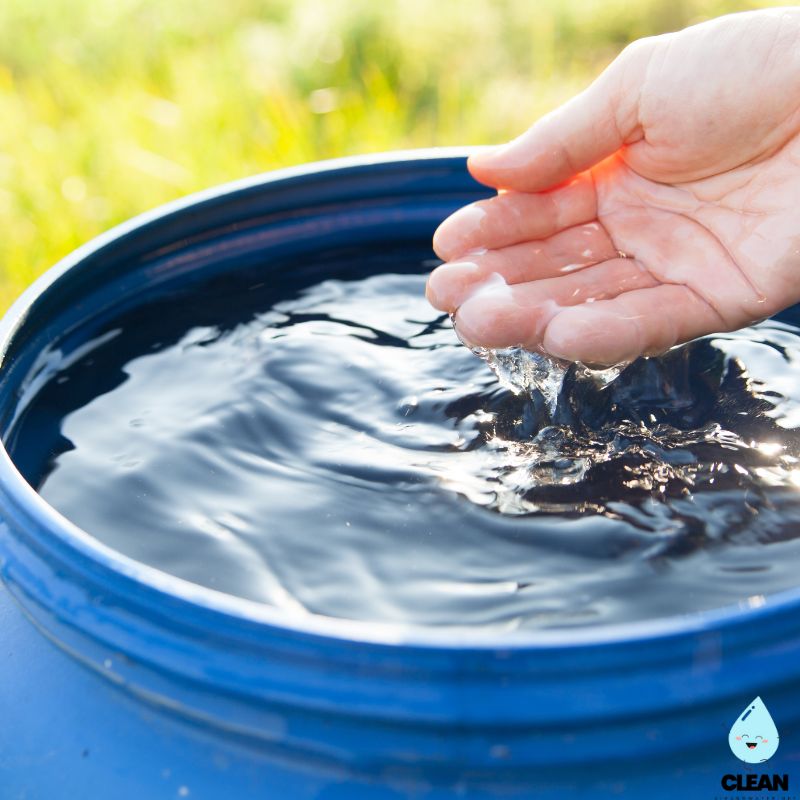
Landscape Responsibly
Plant native North Carolina species that require less water and follow seasonal watering restrictions. Take advantage of rebates for rain gardens, rain barrels, and water-efficient irrigation systems.
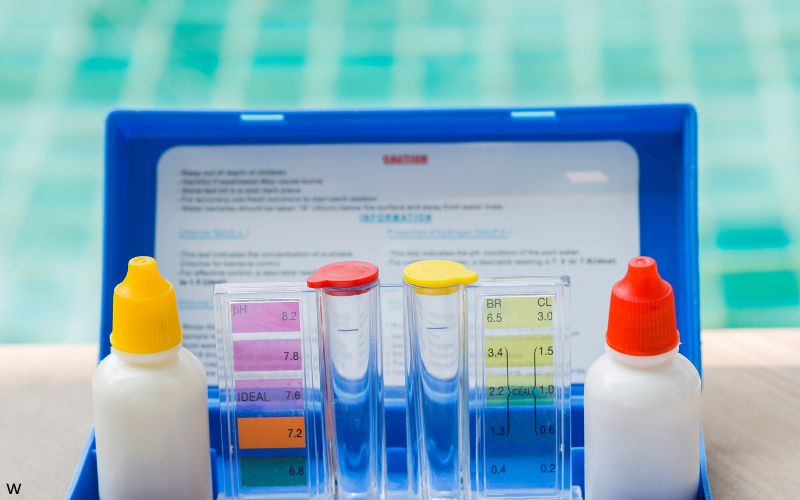
Request Water Testing
Schedule free water testing through Charlotte Water at (704) 336-3300. Testing is especially recommended for homes with children, pregnant women, or those built before 1987.
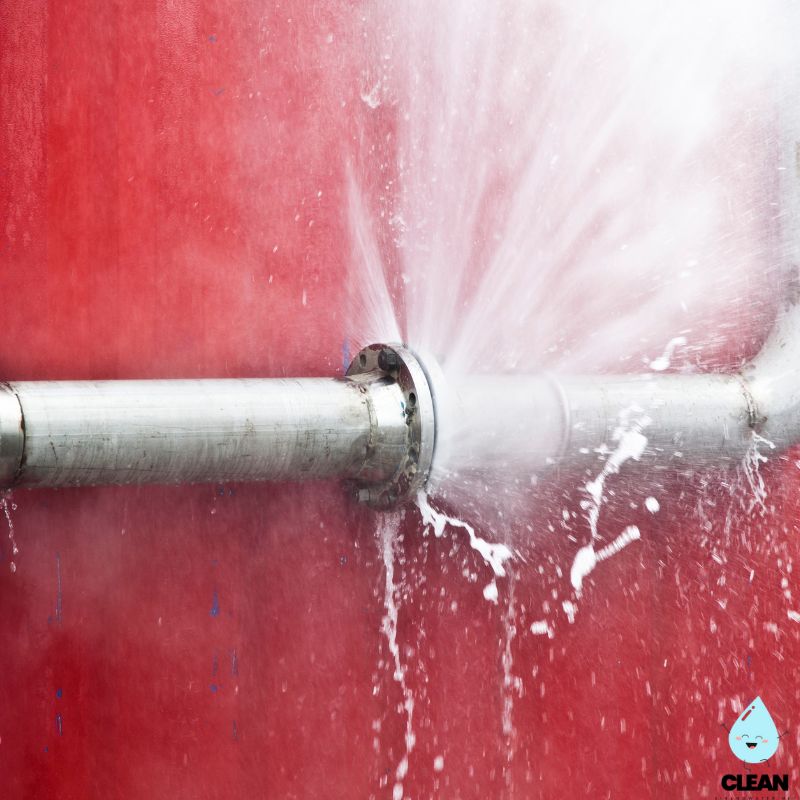
Report Leaks Promptly
Contact Charlotte Water immediately at (704) 336-4100 for water main breaks or system leaks. Use the 311 app for non-emergency reporting and receive updates on repairs.

Practice Proper Usage
Always use cold water for drinking and cooking. If water has been sitting in pipes for 6+ hours, run faucets for 30-60 seconds before use to ensure freshness.
Quality News About Your Water
Get the comprehensive water quality news coverage you need with our dedicated US Water News Service. From coast to coast, we deliver in-depth reporting and expert analysis on PFAS contamination, EPA regulatory changes, infrastructure developments, and emerging water safety issues affecting communities nationwide. While mainstream media only covers the biggest stories, we provide the detailed, ongoing coverage that helps you understand the full scope of America’s water challenges. Whether you’re a concerned citizen, water professional, or community leader, our daily updates and analytical insights keep you informed about the issues that matter most to public health and environmental safety.
Frequently Asked Questions
Is Charlotte’s tap water safe to drink?
Yes, Charlotte’s tap water is safe and meets all federal and state drinking water standards. Our water comes from Lake Norman and Mountain Island Lake, both protected watersheds, and undergoes comprehensive treatment including filtration and disinfection.
Charlotte Water conducts over 170,000 water quality tests annually and publishes results in our annual Water Quality Report. Lead testing shows levels well below EPA limits (2.8 ppb vs. 15 ppb action level). However, residents should be aware that Charlotte has elevated levels of disinfection byproducts compared to health advisory guidelines, and PFAS has been detected at low levels. While our water meets regulatory standards, residents in homes built before 1987 may want to test for lead, and those concerned about disinfection byproducts or PFAS may consider filtration.
What is Charlotte’s One Water Initiative?
Charlotte’s One Water Initiative is an innovative approach that integrates management of drinking water, wastewater, and stormwater as a single resource system. This comprehensive strategy includes:
• Expanding water reuse programs to preserve lake water for drinking
• Implementing green infrastructure to manage stormwater naturally
• Upgrading treatment facilities for increased efficiency
• Protecting watersheds through land conservation and regulation
• Investing in smart water technologies for better system management
This integrated approach ensures sustainable water resources while reducing environmental impact and preparing Charlotte for future growth and climate challenges.
What are Charlotte’s water restrictions?
Charlotte maintains year-round conservation measures with seasonal water restrictions:
Standard Year-Round Rules:
• No irrigation of impervious surfaces (driveways, sidewalks)
• All irrigation equipment must have automatic shut-off or timers
• No watering during rain or within 24 hours after
Seasonal Restrictions (April 1 – September 30):
• Twice weekly watering based on address (even/odd)
• No watering between 10 AM and 4 PM
• Exceptions for newly planted landscapes and drip irrigation
Drought-level restrictions may apply during water emergencies. Visit charlottenc.gov/water for current status and specific requirements.
Why does my water sometimes have a chlorine taste?
Charlotte uses chloramination (combined chlorine and ammonia) as the primary disinfectant to maintain water quality throughout the distribution system. You may notice chlorine taste or odor:
• During seasonal treatment adjustments (typically summer)
• After system maintenance or flushing activities
• In areas with very low water usage
This is normal and indicates the disinfection system is working properly. To reduce taste:
• Refrigerate water in an open container for several hours
• Let water sit uncovered at room temperature before drinking
• Use a certified carbon filter if preferred
Disinfectant levels are carefully monitored and maintained within EPA guidelines for safety.
Contaminants of Concern

Disinfection Byproducts
Source: Form when chloramines react with naturally occurring organic matter in Lake Norman and Mountain Island Lake
Health Effects: Potential increased risk of bladder cancer and reproductive effects with long-term exposure to elevated levels
Current Status: Charlotte’s levels exceed health advisory guidelines by up to 413 times for some byproducts, though within EPA regulatory limits
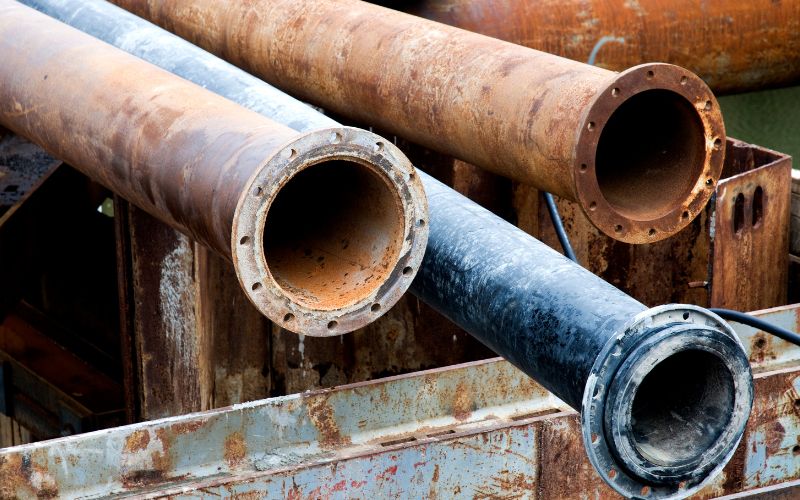
Lead & PFAS
Source: Lead from older plumbing in homes built before 1987; PFAS from industrial discharge and consumer products
Health Effects: Lead causes developmental delays in children; PFAS linked to cancer, liver damage, and immune system suppression
Current Levels: Lead at 2.8 ppb (below EPA limits); PFAS detected at very low levels, below EPA maximum contaminant levels
Please read – our information
The information presented on cleanairandwater.net is compiled from official water quality reports, trusted news sources, government websites, and public health resources. While we strive for accuracy and thoroughness in our presentations, we are not scientists, engineers, or qualified water quality professionals.
Our mission is to present water quality information in an accessible, real-world format that helps people understand what’s in their water and make informed decisions about their health and safety. We believe that complex environmental information should be available to everyone in a format that’s easy to understand.
We make every effort to ensure our content is current and accurate, but we cannot guarantee that all information is complete or error-free. This website should not replace official communications from your local water utility or health department. We always recommend consulting official sources for the most up-to-date information regarding your specific water system.
Clean Air and Water is not liable for any unintentional errors, omissions, or outdated information. The content on this site is provided for informational purposes only and should not be considered professional advice.
